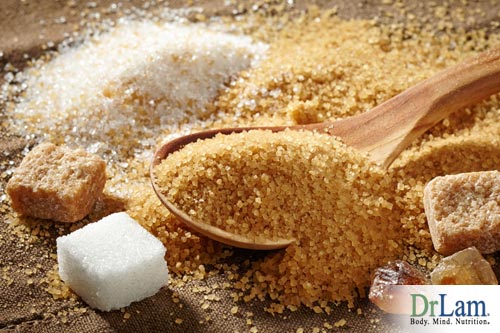 There is a vast amount of literature and information available regarding what you should or shouldn’t eat these days. Various explanations for food sensitivities abound and there is a fad diet for every issue under the sun. There is a core issue of foods causing inflammation that is the keystone for unleashing a better and healthier self. There are some foods that we all know should be eaten sparingly, or not at all, but the general balance and variety of what’s good for your overall health is what we should be striving to adhere to.
There is a vast amount of literature and information available regarding what you should or shouldn’t eat these days. Various explanations for food sensitivities abound and there is a fad diet for every issue under the sun. There is a core issue of foods causing inflammation that is the keystone for unleashing a better and healthier self. There are some foods that we all know should be eaten sparingly, or not at all, but the general balance and variety of what’s good for your overall health is what we should be striving to adhere to.
Sure, there will always be those days when you’re at a party or out for a special dinner where you decide to indulge a little bit and that’s ok. What is important is that there is a managed consistency of healthy choices that become a lifestyle. One of the most overlooked aspects of dieting is that, it should not be a temporary “quick fix” to remedy an issue. It should be a long term solution which permanently eliminates the things you would normally go back to once your temporary diet expires. A diet, as we will refer to in this article, is something that you should be able to adhere to throughout the rest of your life.
Just so we have a background on the issue, let’s briefly discuss what inflammation is and how it can affect our bodies. Inflammation is a biological response to harmful stimuli which takes place in body’s tissue. The basic purpose of inflammation is to eliminate causes of cell injury and clear out damaged cell tissue so that cellular repair can take place.
Signs of inflammation include swelling, redness, and sometimes loss of function in the tissue affected. There are generally two types of inflammation; chronic and acute. The former being prolonged and the latter being isolated. Chronic inflammation can lead us into a variety of health issues such as rheumatoid arthritis, cancer, atherosclerosis, and hay fever. Because of the severity with which inflammation can affect our bodies, it is wise to keep it under control and do our best not to contribute to its proliferation.
There is a long list of foods that are known to cause inflammation. Among these are vegetable oil, sugar, coffee, refined flours, and dairy products. The first of these which is extremely common in the American diet is vegetable oil. Almost every fast food chain and restaurants in general, for that matter, use vegetable oil. As common as it is when eating out, it is just as prevalent in the average kitchen.
 Vegetable oils are heavily processed and contain biologically active fats known as Omega-6 polyunsaturated fatty acids. According to the University of Maryland Medical Center, although essential, Omega-6 fatty acids are consumed fourteen to twenty-five times more in the average American diet than Omega-3 fatty acids. This is important because there are some studies which show that diets high in Omega-6 fatty acids can contribute to heart problems and inflammation. Foods causing inflammation need to be used only when necessary if not eliminated altogether.
Vegetable oils are heavily processed and contain biologically active fats known as Omega-6 polyunsaturated fatty acids. According to the University of Maryland Medical Center, although essential, Omega-6 fatty acids are consumed fourteen to twenty-five times more in the average American diet than Omega-3 fatty acids. This is important because there are some studies which show that diets high in Omega-6 fatty acids can contribute to heart problems and inflammation. Foods causing inflammation need to be used only when necessary if not eliminated altogether.
Because modified fatty acids sit in cell membranes, they have a vital role in the bodies function such as cellular messaging, inflammation, and the immune system. There is competition between Omega-6 and Omega-3 fatty acids in the sense that the higher levels of Omega-6 your body is consuming, the more Omega -3 your bodies need to counteract inflammation.
In short, you should try to substitute healthier oil in your diet and avoid vegetable oil altogether. There are lots of other oils which provide higher Omega-3 fatty acids such as coconut and olive oils. The only downside to these substitutions is that they are, without question, more expensive. There are choices that need to be made regarding how we value certain products. It is the opinion of this author that if resources are being allocated, health should be the first priority.
Sugar might be one of the single most frequently consumed foods causing inflammation in this day and age. When consumed in excess, which is a very easy thing to do, sugar can increase levels of cytokines, a proinflammatory messenger.
Cytokines, when released, have an effect on the behavior of the cells that surround them. There are several inflammatory cytokines which are induced by oxidative stress and even trigger the release of more cytokines. Oxidative stress is caused by an imbalance which has a negative effect on our bodies, preventing proper detoxification processes. When this happens, damaging free radicals can wreak havoc on the cardiovascular system. This type of cycle is clearly detrimental.
There are significant risks associated with eating what’s known as a high-glycemic (high sugar) diet. A study in the Journal of Nutrition discovered that the majority of overweight participants had significantly higher inflammatory problems when compared to those who did not. This was mainly linked to high glycemic
food intake.
The system through which our bodies cope with and handle stress is relatively complex. This system can be broken down into a more easily understood concept with what he has termed the NeuroEndoMetabolic (NEM) Stress Response. The NEM stress response is essentially a complex web which consists of systems and organs which link together forming a functional network.
 There are many separate responses that your body has when it comes to the topic of stress. The one we will focus on for the purposes of this article is the inflammatory response. Our bodies use inflammation to detoxify, heal cells, and support a healthy immune system response.
There are many separate responses that your body has when it comes to the topic of stress. The one we will focus on for the purposes of this article is the inflammatory response. Our bodies use inflammation to detoxify, heal cells, and support a healthy immune system response.
Because there are so many examples, though we’ve only touched on a few, of foods causing inflammation in our bodies, it is necessary to reflect on the harm that they represent to us. If the inflammatory response is placed under a heightened burden and becomes unable to detoxify, it can leave us feeling exhausted and sick.
One of the many complaints that those who are under high levels of stress often reference, is exhaustion and poor physical condition. As it turns out, there might be contributing factors that you are able to control which can help reduce these symptoms.
There is a cyclical theme regarding many of the issues associated with anxiety. People become stressed, experience high toxicity, depression, lethargy, and a typical response is to run to something that can make us feel better quickly. Often these choices are inferior and self-damaging. When you’re tired and run to grab a soda or eat some quickly prepared fried food (vegetable oils), you are contributing to the inflammatory cycle that is causing negative symptoms in the first place.
Not everyone who experiences extreme fatigue is eating foods causing inflammation. There are several independent variables that can contribute to poor stress response but food is an easy target. Because you can see what you put into your body, as your first line of defense, you can attempt to eliminate the threat that some foods pose.
When referencing Adrenal Fatigue Syndrome (AFS), it’s important to have a basic understanding of its signs and symptoms. There are many people who have a late day slump in energy or have a tough time fighting through brain fog and lack of energy. These are common symptoms of AFS. The adrenal glands are responsible for producing fifty different hormones that help our bodies self-regulate and operate as intended. What can happen over time is that, because of several factors, our adrenal glands become overworked and that often results in Adrenal Fatigue (AF).
Toxic exposure is a well-known contributory factor for AFS. This is noteworthy because when the body is dealing with excessive levels of inflammation, it can quickly become unable to detoxify. This lack of ability to maintain sufficient detoxification rates can damage cells and lead one deeper into AF. If you believe that this is happening to you, there are resources available and dietary protocols which have been tailored by Dr. Lam to specifically help you reduce inflammation and detoxify your body. Foods causing inflammation are unnecessary contributors to depressed immunological responses, toxicity, and often act as a catalyst in the spiral towards adrenal exhaustion.
 To say that starting to make a change by limiting sugar and vegetable oils in your diet is important goes beyond reproach as there are too many other options which can be substituted with relative ease. Living a healthy life and developing a plan that works for you can start with simple choices. It is not always the best choice for us to try to overhaul our diets overnight, in fact it can be dangerous.
To say that starting to make a change by limiting sugar and vegetable oils in your diet is important goes beyond reproach as there are too many other options which can be substituted with relative ease. Living a healthy life and developing a plan that works for you can start with simple choices. It is not always the best choice for us to try to overhaul our diets overnight, in fact it can be dangerous.
Make sure that when you decide to modify your diet, it is done in a responsible manner that can be maintained over time. Set a goal that you can meet and keep a positive outlook. The truth is, when you make enough small changes, you’ll be taking control over your personal wellness in a way that you never thought was possible.
The idea of inflammation as dangerous is a fairly new one in the public consciousness. And yet the research is suggesting that chronic inflammation may be one of the most dangerous states that the body can experience. One of the easiest ways to alleviate this problem is by identifying common foods causing inflammation and eliminating them from your diet. Here's how to start:
For help reducing inflammation, click here to talk to one of our doctors or call us on +1 (626) 571-1234.
© Copyright 2017-2020 Michael Lam, M.D. All Rights Reserved.
